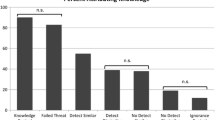Abstract
Rationality, whatever exactly it demands of us, promotes success, whatever exactly that is. Some philosophers interpret that slogan as something that can provide them with a way of reductively explaining the demands of rationality by appeal to some independently intelligible notion of success: being rational, they might say, is just having whatever property it is that promotes success. Other philosophers may interpret the same slogan as something that can provide them with a way of reductively explaining the notion of success by appeal to some independently intelligible notion of the demands of rationality: having success, they might say, is just having whatever property it is that is promoted by being rational. In this paper, I argue that neither of these reductive efforts can succeed. I then argue that understanding the way in which rationality promotes success requires us to understand why the promotion relation between rationality and success can be severed by some kinds of luck, but not by others. To explain the kind of luck that can sever promotion, we should conceive of both rationality and success as distinct but related facets of something more fundamental than either of them.
Similar content being viewed by others
Notes
I develop that notion of control more fully in Neta 2021.
See Brown 2011.
See Kolodny 2005.
Also, I develop this account of rational agency more fully in Neta 2018 and Neta 2021. Also, I believe that the positive view I sketch here is a version of the positive view defended in Sosa 2015 and also a version of the positive view defended in Sylvan 2020. While Sosa, Sylvan, and I all differ on a number of points of detail, I believe that the parts of my positive view that I sketch here are also parts of their positive view.
See Sosa 2015.
For helpful comments on earlier drafts of this paper, I am indebted to Kate Abramson, Adam Leite, Kirk Ludwig, Eric Marcus, and Daniel Singer.
References
Berker, S. (2013). Epistemic teleology and the separateness of propositions. Philosophical Review, 122, 337–393.
Brown, C. (2011). Consequentialize this. Ethics, 121, 749–771.
Kolodny, N. (2005). Why be rational? Mind, 114, 509–563.
Neta, R. (2018). Rationally determinable conditions. Philosophical Issues, 28, 289–299.
Neta, Ram. 2021. “Justification Ex Ante and Ex Post.”
Singer, D. (2018). Permissible epistemic trade-offs. Australasian Journal of Philosophy, 97, 281–293.
Sosa, E. (2015). Judgment and agency. Oxford University Press.
Sylvan, K. (2020). An epistemic non-consequentialism. Philosophical Review, 129, 1–51.
Author information
Authors and Affiliations
Corresponding author
Additional information
Publisher’s Note
Springer Nature remains neutral with regard to jurisdictional claims in published maps and institutional affiliations.
Rights and permissions
About this article
Cite this article
Neta, R. Rationality, Success, and Luck. Acta Anal 37, 57–71 (2022). https://doi.org/10.1007/s12136-021-00486-w
Received:
Accepted:
Published:
Issue Date:
DOI: https://doi.org/10.1007/s12136-021-00486-w



